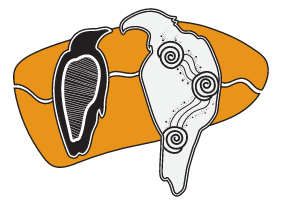What is ICIP (Indigenous Cultural and Intellectual Property)?
February 21, 2024
Tourism is all about sharing stories and knowledge with visitors. However, when it comes to sharing cultural stories or knowledge (through tourism or art or other forms of expression), there are limitations and cultural protocols that need to be understood and respected by both Taungurung People and those engaging with the content being shared.
ICIP is something that all First Nations communities are determined to protect. This stems from the devastating impact of colonisation, when First Nations People were separated from their land, their families, their languages, their lores and their way of life, leaving ripple effects still felt today. First Nations people are slowly trying to heal these cultural connections but have never lost ownership of them. They have the legal right to protect their culture and be in control of how their knowledge is used. wawa biik has set out some guidelines to help our visitors understand what ICIP is and remind people of the importance of helping us keep Taungurung culture safe and strong for future generations. This includes seeking permission if re-producing any aspect of our cultural experiences or knowledge for commercial or promotional purposes.
We don’t want these ICIP protocols to deter people from listening, engaging and sharing what they learn with friends and family – quite the contrary, we want you to tell people about your wonderful wawa biik experience but respectfully consider what you share and how you share it. ICIP protocols are about acknowledging the enormous challenges faced by all First Nations communities to protect their culture, and with this comes the extra incentive to deeply listen and learn from cultural stories that are generously shared with you, knowing that the act of listening is also contributing to healing. If you’re in doubt about what you can and can’t share, or have queries about ICIP, please ask us.
View our ICIP protocols and our wawa biik Booking T&Cs for more information.
